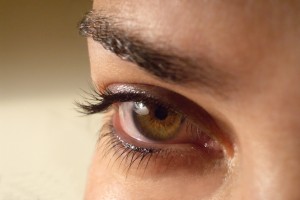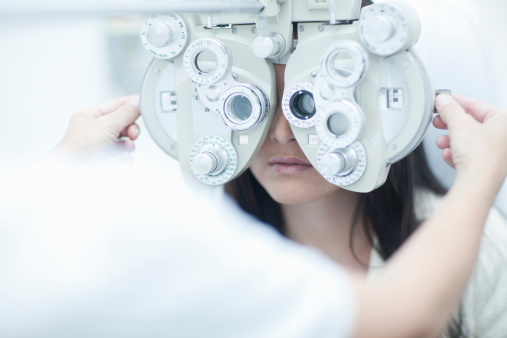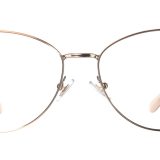Dry Eyes and Eye Irritations
Plagued by Dry Eyes?
Dry eyes are one of the most common problems some Americans face when it comes to their eyes.
Dry eyes occur when your eyes either are not producing enough tears or the chemical makeup of your tears causes them to evaporate too quickly.
However, the sole purpose of tears is to clean out your eyes, protect them from infection, and keep them comfortable. Tears remove dirt and dust that are attracted to your eyes surface, and most importantly, they keep your eyes moist and lubricated.
According to WebMD, “Tears are a combination of water, for moisture; oils, for lubrication; mucus, for even spreading; and antibodies and special proteins, for resistance to infection.”
Symptoms of Dry Eye
If you know someone who suffers from dry eyes, or if you suffer from it yourself, you may notice that at times, your eyes water excessively. Ironically, that’s actually a symptom of dry eyes. Your dry eyes send a signal through your nervous system, which then floods your eyes with water. But that’s the problem – all those tears coming from your eyes are mostly water and don’t hold much of the lubricating chemical your eyes need to retain moisture.
Other symptoms are more obvious, such as a scratching or burning sensation, sensitivity to light, redness, blurry vision, and just general discomfort and pain in and around your eye area.
Causes of Dry Eyes
There are many different factors that could lead to dry eyes. In fact, dry eyes have been said to be a natural part of the aging process. People older than 50 and women going through menopause experience dry eyes pretty commonly.
Dry eyes are also the side effect of certain medicines and diseases. Medication such as birth control, antidepressants, antihistamines, and certain blood pressure medicine can affect your ability to produce tears.
Medical conditions such as diabetes, rheumatoid arthritis, thyroid disorders, vitamin deficiency, lupus, scleroderma, and Sjogren’s syndrome can change the way you produce tears.
LASIK surgeries can cause a decrease in tear production as well. Though typically a temporary side effect to the procedure, it’s not uncommon.
The more serious causes or direct causes rather, for dry eyes are issues with your eyelids. Conditions such as an ectropion (out turning of the eyelid) or entropion (inward turning) can keep your eyelid from distributing your tears evening across your eye as you blink.
Of course, there are other causes that could contribute to dry eyes that are not medically related: where you live. If you live in a dry, windy or high altitude region, you are more susceptible to dry eyes. Also, any job or task that requires you to strain your eyes (such as working at a computer, driving or reading for long periods of time) can have the same effect.
Risks of Dry Eyes
Having dry eyes isn’t life threatening. However, it is majorly uncomfortable. And because your eyes don’t produce tears to protect the surface of your eyes, you are more prone to eye infections. If you leave your dry eyes untreated, it could also possibly result in scarring your eye surface.
Solutions for Dry Eyes
Eyedrops
At America’s Best, many patients ask, “What are the best drops for dry eyes?”
Unfortunately, we can’t answer that. Your history, what you’re sensitive to, what’s causing your dry eye, along with many other factors plays into finding the right drops for you. We highly recommend you consult your local optometrist to figure out which eye drops will work best for you.
Punctal Occlusion
A fancy way of saying closing your tear ducts. It’s not anywhere near as painful as it sounds. The plug, which is miniscule, blocks tears from draining too quickly and therefore allows your eye to retain moisture.
Sunglasses
Sunglasses help block bright light, pollutants in the air and wind and dust particles from directly hitting your eye. Not to mention, they also protect your eyes from straining and harmful UV rays.
Prescription Eye Drops
Ask your doctor about prescription eye drops if your dry eyes are caused by seasonal allergies, or pollutants like dust and pollen.
Topical Steroids
Topical steroids have been used in certain cases, along with other medications.
Surgery for Dry Eyes
If your dry eyes don’t find any comfort with the options above, surgery is also a possible solution. With the use of local anesthesia, tear ducts can be permanently closed, keeping your tears from draining. It’s usually performed as an outpatient surgery and doesn’t require any down time afterwards.











